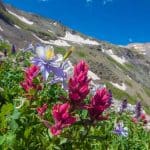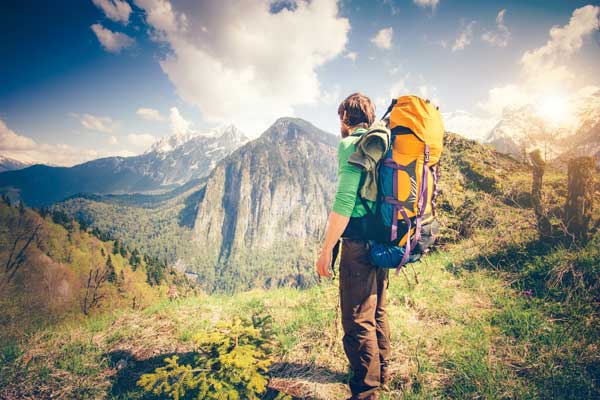
With so many choices, even the most experienced hikers find it difficult to choose where to start. So, if you’re new to hiking or are yet to explore the Colorado wilderness, read on to find out what you need to know about backpacking Colorado.
ALL INCLUSIVE BACKPACKING TRIPSColorado is a Hiker’s Paradise!
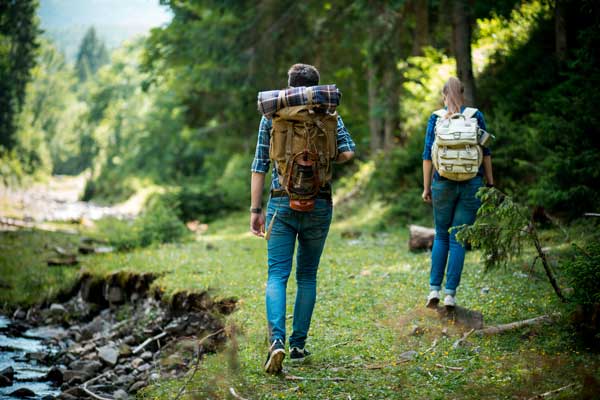
This incredibly beautiful state is filled to the brim with unforgettable alpine adventures and world-class hiking trails for those backpacking Colorado. From the turquoise lakes of the Rocky Mountain National Park to the numerous 14ers, here, you’ll find wildlife, waterfalls and scenic vistas by the bucket load! With so many choices, even the most experienced hikers find it difficult to choose where to start. So, whether you’re new to hiking and are interested in all-inclusive Colorado vacation packages, or are yet to explore the Colorado wilderness, read on to find out what you need to know about backpacking Colorado.
Trails for Beginners Backpacking Colorado
For those who want a gentle introduction to hiking in Colorado, these trails will give you a great overview of the diversity of the state’s wilderness:
Bear Lake Trail, Rocky Mountain National Park
In close proximity to Estes Park, this easy 0.8-mile hike loops around the picturesque, Bear Lake, on a flat, pine-shaded track that offers plenty of places to stop and appreciate the view. There’s also an interpretative guide that provides information about 30 marked locations for hikers backpacking Colorado. Parking at the trailhead can be extremely difficult to find, especially in summer, so consider catching the free shuttle. If you want to venture a little further, there’s a few other great walks that leave from this same trailhead.
Chautauqua Trail, Chautauqua Park
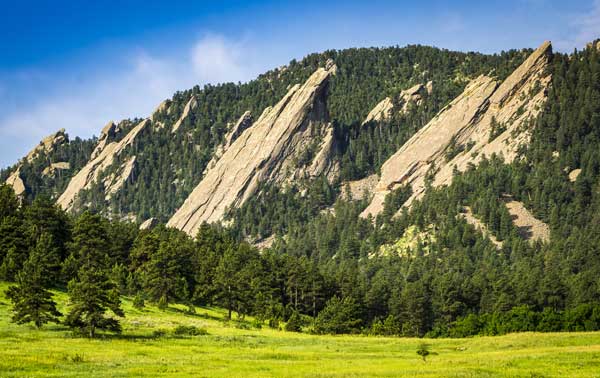
This 1.2-mile return trip offers a scenic stroll through a wildflower covered meadow (in early summer) gradually ascending towards the famous Flatirons. There’s also impressive views towards Boulder on the return trip. Combine the Chautauqua trail with any of the other short walks at this location for a great introduction to Colorado hiking.
Serpents Trail, Colorado National Monument
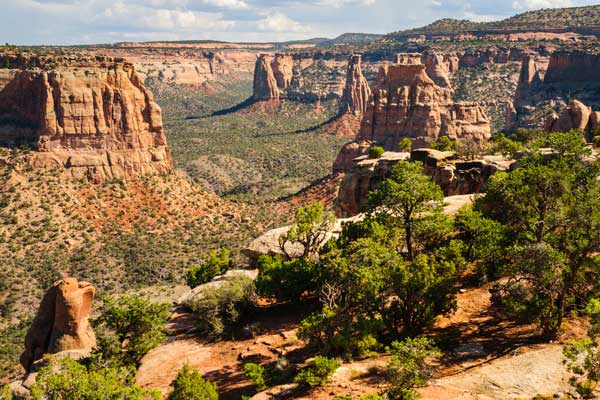
Nicknamed the ‘crookedest road in the world’, this historic trail employs 16 switchbacks to climb to impressive views of Grand Valley. It was once used as the original road into the Colorado National Monument and provides a well-graded rise to 700 feet over the 1.75-mile one-way track.
Hiking Loops for More Experienced Hikers Backpacking Colorado
Once you’ve had a taste of what Colorado hiking has to offer, you’ll be ready to hit up these more experienced backpacking trails:
Continental Divide Loop, Rocky Mountain National Park
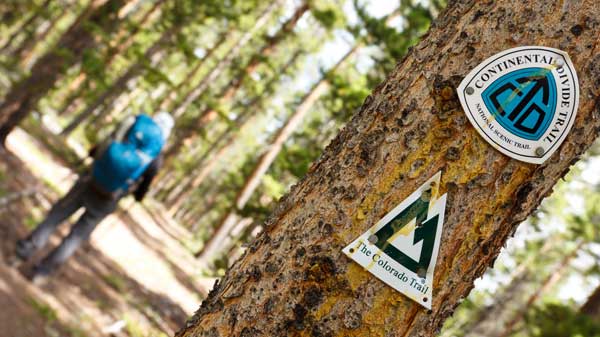
This track will take you through the Rocky Mountain National Park from east to west to discover the very best high-altitude peaks, lakes and lush meadows. Over approximately 30 miles, you’ll climb steep switchbacks, see waterfalls and wildlife, trek through forested valley’s and enjoy incredible views of the Granite Gorge. Most people complete this trip in 5 days. Afternoon thunderstorms usually mean starting and finishing your days early.
Eaglesmere and Surprise Lake Loop, Eagles Nest Wilderness
For a longer Colorado day hike, this 10.7-mile trail sets out from the parking lot at the Surprise Lake or Eaglesmere trailheads to navigate the northern perimeter of the Eagles Nest Wilderness area. You’ll pass through aspen forests, dense spruce-fir forests and several lakes. There’s also an optional side-trip to the Upper Cataract Lake that’ll add an extra 4.3-miles round-trip to the trek.
Maroon Bells 4 Pass Loop, Maroon Bells and Snowmass Wilderness
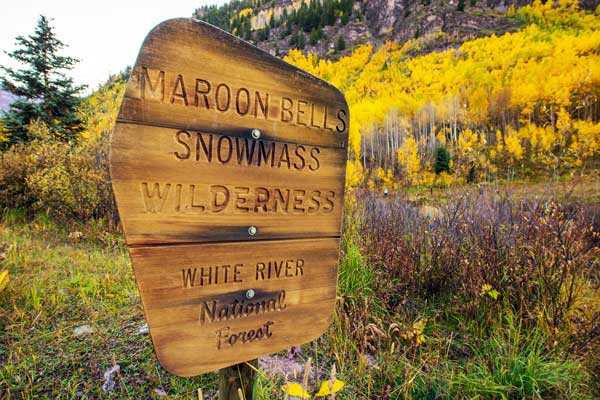
This 1.2-mile return trip offers a scenic stroll through a wildflower covered meadow (in early summer) gradually ascending towards the famous Crater Lake. This impressive, 24-mile loop trail is a classic Colorado hiking experience. It traverses 4 mountain passes above 12,000 feet and offers incredible views as far as the eye can see. On this journey, you’ll pass through aspen and spruce forests and alpine meadows to visit 4 stunning lakes. Most people take 4-5 days to complete this trip and the first-come-first-served campsites allow you the flexibility to break your days into manageable sections. Be sure to carry bear spray and a canister!
Backpacking Colorado
Book your customized Colorado backpacking experience with Next Adventure Company for a hassle free vacation in Colorado.
GET A FREE QUOTEThe Best Hiking Near Denver
Being the largest city in Colorado, regardless of whether you’re a visitor or a local, you’ll probably spend some time in the Mile-High City. Be sure to hit up these great hiking trails near Denver:
Mills Lake, Rocky Mountain National Park
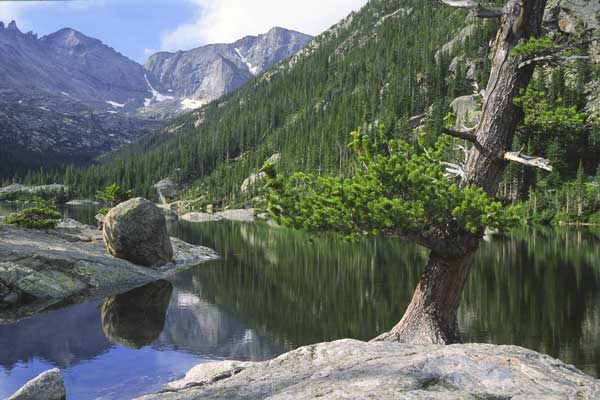
This Colorado hiking trail is one of the most scenic in Rocky Mountain National Park and less than a 2-hour drive from Denver and only 12 miles from Estes Park. Here, you’ll pass by the 30-foot drop of Alberta Falls to cross the footbridge over Glacier Creek to your destination, Mills Lake. It’s a 5.3-mile round trip that makes for an excellent short, day hike and picnic spot, surrounded by impressive mountain views.
Ouzel Falls, Rocky Mountain National Park
The Ouzel Falls track is as often taken for its impressive wildflowers as it is for the falls themselves. If you’re hiking from Denver between late June to early July, you just might be able to see a rare, calypso orchid, growing in the shady spots on the side of this trail. But, if the wildflowers aren’t out, you won’t be disappointed with this relatively easy, 5.4-mile return trail that climbs gradually to the 40-foot high, Ouzel Falls.
Royal Arch Trail, Chautauqua Park
For a moderately difficult but rewarding, 3.4-mile out and back hike, consider the Royal Arch Trail in the Chautauqua Park near Denver. This trail climbs to the Royal Arch, a 20-foot wide sandstone rock formation from which you’ll also be able to enjoy views of Boulder as it stretches out over the plains towards the foothills of the Front Range.
Dangers You Might Encounter While Backpacking Colorado
If you’re a newbie to hiking in Colorado, you’ll benefit from understanding the unique challenges of this environment. Because most hiking trails in Colorado pass through alpine areas, you’ll more than likely encounter fast-changing weather conditions and must be adequately prepared to have a safe trip.
Lightning kills a significant number of people every year in Colorado. Thunderstorms regularly occur in the early afternoon and often roll in seemingly unexpectedly. It’s, therefore, recommended to start hiking early in the morning so that you can summit and be back below the tree line before the afternoon storms hit. However, if you do notice the weather deteriorating, immediately begin to descend to a lower elevation. Lightning is attracted the highest objects around making mountain peaks, rocky outcrops, cave openings and tall trees risky places to be. If you’re caught in a thunderstorm, seek shelter in the lowest lying place available. Avoid isolated trees, rocks and don’t stay in your tent. Instead, seek a denser stand of short trees, venture at least 6 feet into a cave or crouch down on the balls of your feet to make yourself as small as possible.
Colorado’s ever-changing weather conditions also increases the risk of suffering from hypothermia when backpacking. Most cases of hypothermia occur due to wet or inadequate clothing. Regardless the weather forecast is, always carry warm and waterproof layers as conditions change rapidly. Wool and synthetic clothing are the best choices and never wear cotton when backpacking Colorado. If you do encounter adverse weather, seek shelter in a tent or another dry place, always keep your sleeping bag in a dry bag and drink warm liquids if you begin to get too cold.
Another common danger you might encounter when hiking in Colorado are flash floods. These occur when heavy rain falls in the mountains and can catch people by surprise when the weather is fine but rapidly rushes downhill to flood both wet and dry river and creek beds. When backpacking in Colorado, always keep an eye out for sudden changes in water levels and move to higher ground if it starts to rise. Never camp in or close to a dry or flowing creek bed.
Common Colorado Hiking Mistakes to Avoid
Even the most experienced hikers can get into dangerous situations by making simple errors. If you’re a newbie to backpacking Colorado, avoid these mistakes:
- Hiking alone – It’s always recommended to hike with at least one other person and never separate from your group. If you do head out hike Colorado trails solo, take a personal locator beacon (PLB) with you to help rescuers locate you in an emergency.
- Not telling anyone your hiking plan – Even if you’re hiking with a group, always tell someone else what your planned route is and when you expect to return. Set a particular time by which your ‘check person’ should notify authorities if you haven’t returned but don’t forget to let them know once you do reach your destination safely.
- Underestimating the trail or overestimating your ability – Beginners often set out with an unrealistic expectation of how long trails will take them to complete. Start out easy and work up to more challenging hikes.
- Not turning back – If you or anyone else in your group think that you should turn back for any reason including the weather, illness, injury, fatigue, hazards or slow progress, always turn back! Failing to do so can be fatal and if one person needs to turn back, don’t let them go alone.
- Not dressing properly – Always be over-prepared for a wide range of weather conditions by packing lots of layers of cool, warm and dry synthetic or wool clothing. If you find you’re too hot or cold while hiking, stop immediately and adjust your clothing layers to keep your temperature regular.
- Not carrying a survival kit – Carrying a survival kit will help you to stay warm, dry and hydrated until you can continue or help arrives. This should at least include a shelter package, firestarter, emergency food, water purification kit, signaling device, first aid kit, compass and a map.
Altitude Sickness While Backpacking Colorado
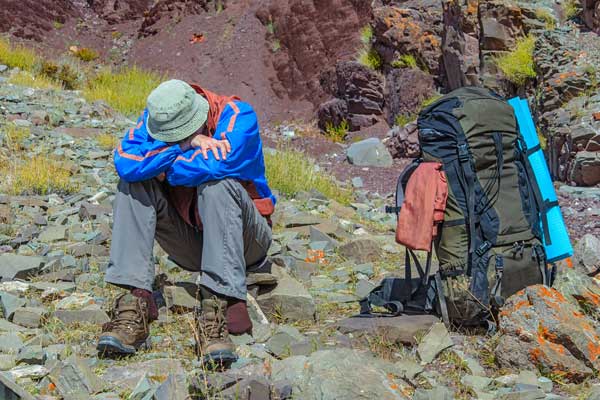
Altitude sickness, also known as acute mountain sickness (AMS), occurs when your body can’t get enough air from the low oxygen levels available in the atmosphere at high altitudes. It usually occurs from anywhere above 8,000 feet and can affect anyone, regardless of their physical condition. While mild altitude sickness is common and usually doesn’t cause any lasting effects, severe altitude sickness can be life-threatening. If you’re backpacking in Colorado, there’s a good chance you’ll experience some level of altitude sickness during your hike.
Altitude sickness can cause headaches, dizziness, nausea, vomiting, shortness of breath, sleeping difficulties, weakness, decreased coordination and tiredness. If you start to experience any of these symptoms, the best thing to do is to descend at least 1,000 feet as soon as possible. If your symptoms don’t begin to improve, continue to descend and seek professional help.
To reduce the risk of altitude sickness while backpacking in Colorado, give yourself plenty of time to acclimatize to the elevation. This might involve completing a few easier hikes around Denver at 5,000 feet before ascending to 7,000 feet and doing the same. You’ll also need to drink much more water than usual, avoid alcohol and caffeine and eat a high calorie diet as your body needs more fuel and water at high altitude.
How to Purify Your Water While Hiking in Colorado
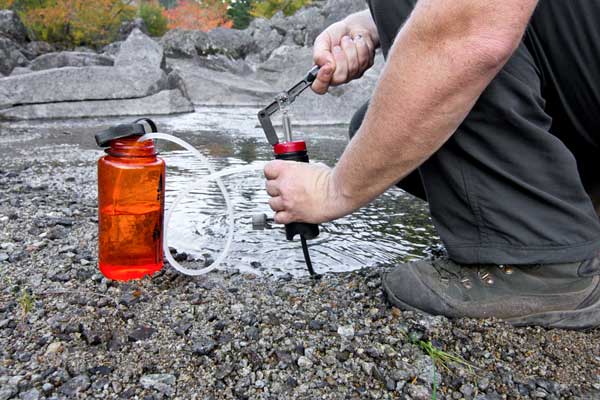
When hiking in Colorado, you’ll need at least half a gallon of water per day to stay adequately hydrated. At higher elevations or when you’re exerting yourself physically, this will increase even further.
Most backpackers in Colorado tend to filter water from rivers, streams or alpine lakes to avoid having to carry so much water. However, giardia is a parasite that’s commonly found in water sources throughout the state and can cause dangerous or deadly diarrhea and vomiting.
To purify your water while hiking in Colorado, there’s several different techniques that will kill giardia and other potential parasites. These include boiling, filtration, UV light sterilization and using additives such as chlorine and iodine tablets. Regardless of which method you choose, always treat any water collected from sources in Colorado before you use it for drinking or cooking.
Essential Colorado Backpacking Gear
Before heading out to backpack Colorado, you’ll need to be equipped with enough gear to keep you safe and comfortable. While exactly what and how much you’ll need will vary on where you’re going, how long you’re hiking for and what season it is, there are some basics everyone should pack. These include:
- Supportive footwear – This should be well matched to the length and terrain of your hike
- Quality, rain-resistant backpack – This should be comfortable and large enough to fit all your gear. A waterproof pack cover is essential if hiking in adverse weather conditions.
- Lots of clothing layers – Including synthetic base layers, jackets, a wind/rain shell, a wool or fleece hat, sun hat, gloves and extra socks.
- 3-season tent – Capable of keeping you warm in cold, wet and windy overnight conditions.
- Sleeping bag and insulated sleeping pad – Recommended to be rated down to 15°–29°F or lower depending on the season.
- Dry bags – You’ll use these to keep your sleeping bag, electronics, maps and some warm clothes dry.
- Camp stove and fuel – Water boils at a lower temperature at altitude which means that rehydrated food may take longer to cook.
- Waterproof firestarter – Options include waterproof matches, lighter or tinder.
- Water bottles and purification system – Filter, Steripen or treatment tablets.
- Survival kit – Including basic first aid gear, shelter, compass, signaling device and emergency food.
- Sun protection – The sun burns at high altitude even if it feels cool.
- Insect repellent – Ticks and mosquitos can be a problem when hiking in Colorado.
- Bear spray and bear canister – Only required if hiking through bear country.
- Knife or multi-tool – Useful for all sorts of Colorado hiking situations.
- Map or GPS – Be sure to have enough battery or carry a map as well.
Colorado Backpacking Adventures
Book your customized Colorado backpacking experience with Next Adventure Company for a hassle free vacation in Colorado.
ALL INCLUSIVE GUIDED TREKS


